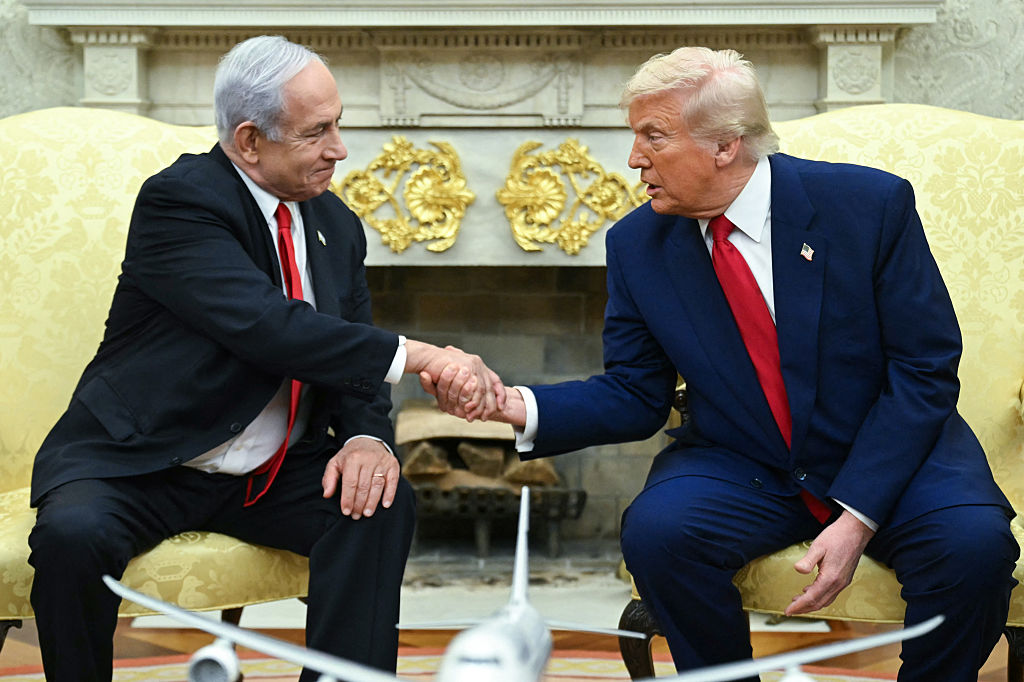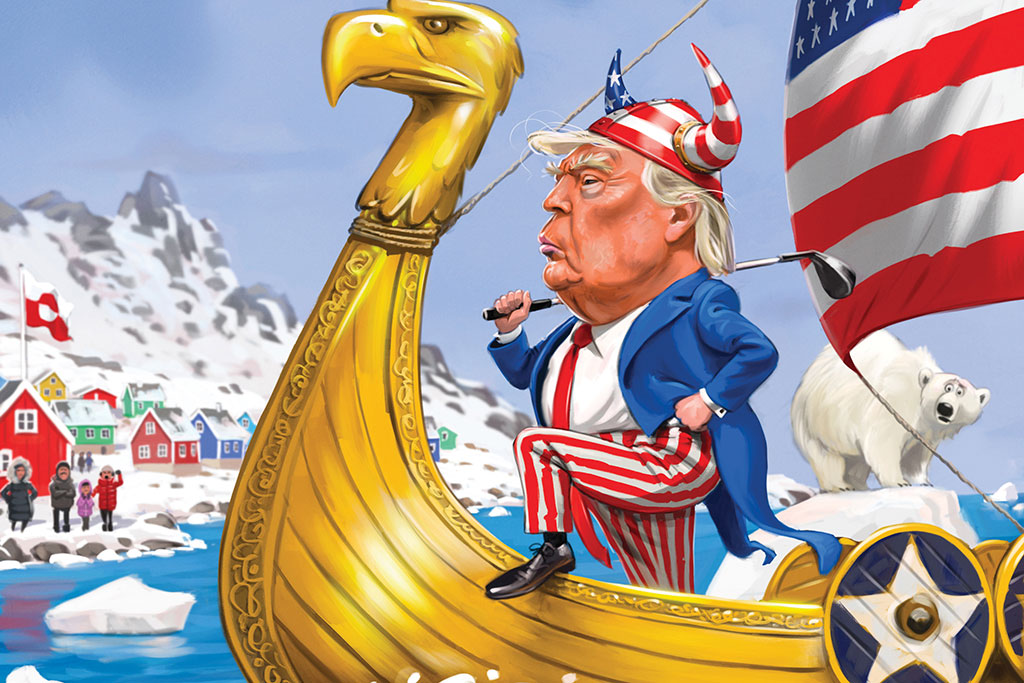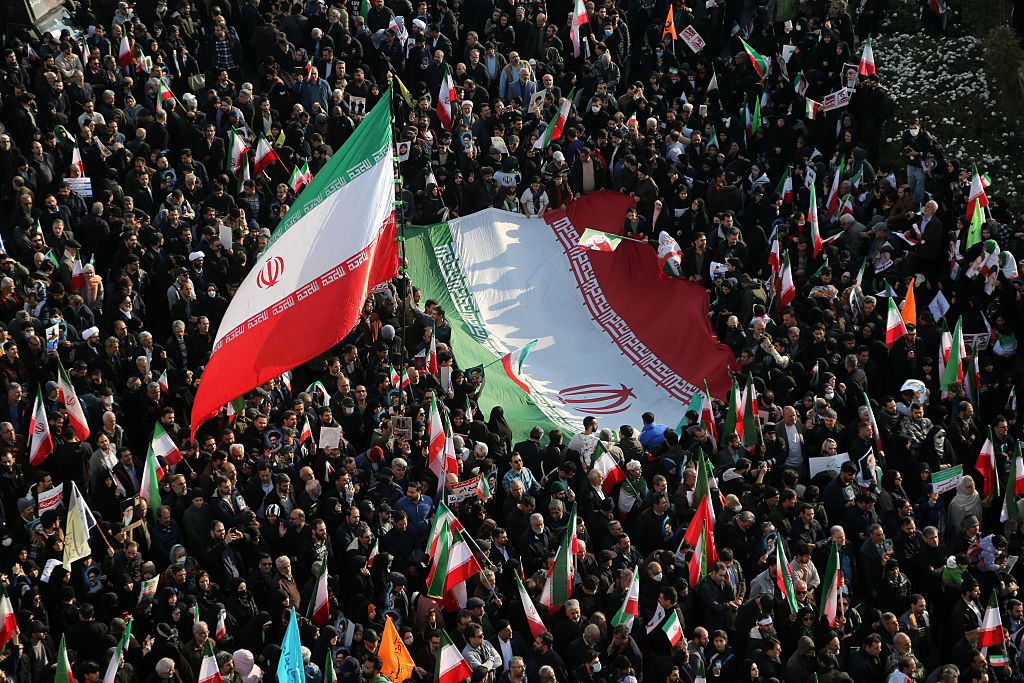Israel attacks Iran – will the US join the conflict?
The two countries have been exchanging fire since Israel launched air strikes against Iranian nuclear facilities and infrastructure on Friday 13 June. But without US involvement, it may only have created a “wounded big beast”


Get the latest financial news, insights and expert analysis from our award-winning MoneyWeek team, to help you understand what really matters when it comes to your finances.
You are now subscribed
Your newsletter sign-up was successful
Want to add more newsletters?

Twice daily
MoneyWeek
Get the latest financial news, insights and expert analysis from our award-winning MoneyWeek team, to help you understand what really matters when it comes to your finances.

Four times a week
Look After My Bills
Sign up to our free money-saving newsletter, filled with the latest news and expert advice to help you find the best tips and deals for managing your bills. Start saving today!
“Donald Trump faced one of the most monumental decisions of his presidency on 17 June as he debated whether to join a war against Iran that risked sucking Washington into a new Middle Eastern conflict but also offered the chance to eliminate a foe’s nuclear programme,” says Michael Birnbaum in The Washington Post.
Posting throughout the day on social media, Trump said the US had “complete and total control of the skies over Iran”, warned Iranian supreme leader Ali Khamenei that he was an “easy target”, and demanded Iran’s “unconditional surrender”. He had hurried home early from the G7 summit in Canada to attend an 80-minute meeting in the White House situation room, after a conversation with Israeli prime minister Benjamin Netanyahu.
Israel and Iran have been exchanging fire since 13 June, when Israel launched air strikes against Iranian nuclear facilities and infrastructure, shortly after Iran had “brazenly flouted” the two-month deadline Trump had given Iran for engaging in talks, says Newsweek’s Dan Perry.
MoneyWeek
Subscribe to MoneyWeek today and get your first six magazine issues absolutely FREE

Sign up to Money Morning
Don't miss the latest investment and personal finances news, market analysis, plus money-saving tips with our free twice-daily newsletter
Don't miss the latest investment and personal finances news, market analysis, plus money-saving tips with our free twice-daily newsletter
Long seen as a “mighty power”, Iran’s ambitions for regional dominance “have been destroyed in just five days by a country with a tenth of its population and an 80th of its land mass”, says Adrian Bloomfield in The Telegraph. Most of its missiles have been intercepted while Israel has “wiped out” Iran’s air defences, its drones have destroyed more than 120 ballistic missile launchers, and 11 of Iran’s generals and the country’s top nuclear scientists have been killed. Israel’s attack on its launch sites may have more than halved its missile capacity. Thousands have fled Tehran.
Will Trump join the conflict between Israel and Iran?
Netanyahu’s attack has been years in the making, says William Hague in The Times. The idea that a theocratic regime in Tehran that threatens to destroy other nations should never be allowed to possess nuclear weapons is “sound”. However, Netanyahu’s insistence that “diplomacy could never work” has “severely undermined” efforts by the US and others. Trump abandoned the 2015 Joint Comprehensive Plan of Action in his first term and, although “second-term Trump” has been trying to “stick a deal back together”, Iran now has “far more” enriched uranium. The increasing likelihood of nuclear “breakout” made Israel’s attack easier to justify. It helped that Iran’s key ally, Bashar al-Assad, has fled Syria, and proxies in Lebanon and Gaza have been “hammered by the Israelis”. The Iranian leaders are “cornered.”
Only the US has weapons powerful enough to blow up Iran’s main nuclear site at Fordow, says Roger Boyes in The Times. Without its involvement, Iran, with Russian and Chinese backing, remains a “wounded big beast”. Khamenei has warned of “irreparable harm” if the US military becomes involved. There is also the risk that any intervention that “appears externally driven” backfires, says Dan Perry. The Islamic Republic is run by an “unaccountable clerical elite” which controls its people through censorship and repression, but if Iran’s globally minded citizens “despise” the regime, society remains “deeply nationalistic”.
Civil society is fearful and fragmented, and many people are economically dependent on the state. This means the “most plausible scenario is a palace coup: a rupture within the military”. Trump is averse to protracted military engagements, but the success of Israel’s strikes and his love of “dramatic” wins may incline him to take steps that would allow him to position himself as the “architect of Iran’s ‘freedom moment’”. “At a moment of grave uncertainty, one thing is not in doubt” – Iranians deserve “better than the theocratic prison” to which they’ve been consigned since 1979.
This article was first published in MoneyWeek's magazine. Enjoy exclusive early access to news, opinion and analysis from our team of financial experts with a MoneyWeek subscription.
Get the latest financial news, insights and expert analysis from our award-winning MoneyWeek team, to help you understand what really matters when it comes to your finances.

Emily has worked as a journalist for more than thirty years and was formerly Assistant Editor of MoneyWeek, which she helped launch in 2000. Prior to this, she was Deputy Features Editor of The Times and a Commissioning Editor for The Independent on Sunday and The Daily Telegraph. She has written for most of the national newspapers including The Times, the Daily and Sunday Telegraph, The Evening Standard and The Daily Mail, She interviewed celebrities weekly for The Sunday Telegraph and wrote a regular column for The Evening Standard. As Political Editor of MoneyWeek, Emily has covered subjects from Brexit to the Gaza war.
Aside from her writing, Emily trained as Nutritional Therapist following her son's diagnosis with Type 1 diabetes in 2011 and now works as a practitioner for Nature Doc, offering one-to-one consultations and running workshops in Oxfordshire.
-
 Should you buy an active ETF?
Should you buy an active ETF?ETFs are often mischaracterised as passive products, but they can be a convenient way to add active management to your portfolio
-
 Power up your pension before 5 April – easy ways to save before the tax year end
Power up your pension before 5 April – easy ways to save before the tax year endWith the end of the tax year looming, pension savers currently have a window to review and maximise what’s going into their retirement funds – we look at how
-
 How Canada's Mark Carney is taking on Donald Trump
How Canada's Mark Carney is taking on Donald TrumpCanada has been in Donald Trump’s crosshairs ever since he took power and, under PM Mark Carney, is seeking strategies to cope and thrive. How’s he doing?
-
 Why does Trump want Greenland?
Why does Trump want Greenland?The US wants to annex Greenland as it increasingly sees the world in terms of 19th-century Great Power politics and wants to secure crucial national interests
-
 'Investors should brace for Trump’s great inflation'
'Investors should brace for Trump’s great inflation'Opinion Donald Trump's actions against Federal Reserve chair Jerome Powell will likely stoke rising prices. Investors should prepare for the worst, says Matthew Lynn
-
 The state of Iran’s collapsing economy – and why people are protesting
The state of Iran’s collapsing economy – and why people are protestingIran has long been mired in an economic crisis that is part of a wider systemic failure. Do the protests show a way out?
-
 Why does Donald Trump want Venezuela's oil?
Why does Donald Trump want Venezuela's oil?The US has seized control of Venezuelan oil. Why and to what end?
-
 Market predictions for 2026: Will Dubai introduce an income tax?
Market predictions for 2026: Will Dubai introduce an income tax?Opinion My 2026 predictions, from a supermarket merger to Dubai introducing an income tax and Britain’s journey back to the 1970s
-
 The war dividend – how to invest in defence stocks as the world arms up
The war dividend – how to invest in defence stocks as the world arms upWestern governments are back on a war footing. Investors should be prepared, too, says Jamie Ward
-
 Did COP30 achieve anything to tackle climate change?
Did COP30 achieve anything to tackle climate change?The COP30 summit was a failure. But the world is going green regardless, says Simon Wilson